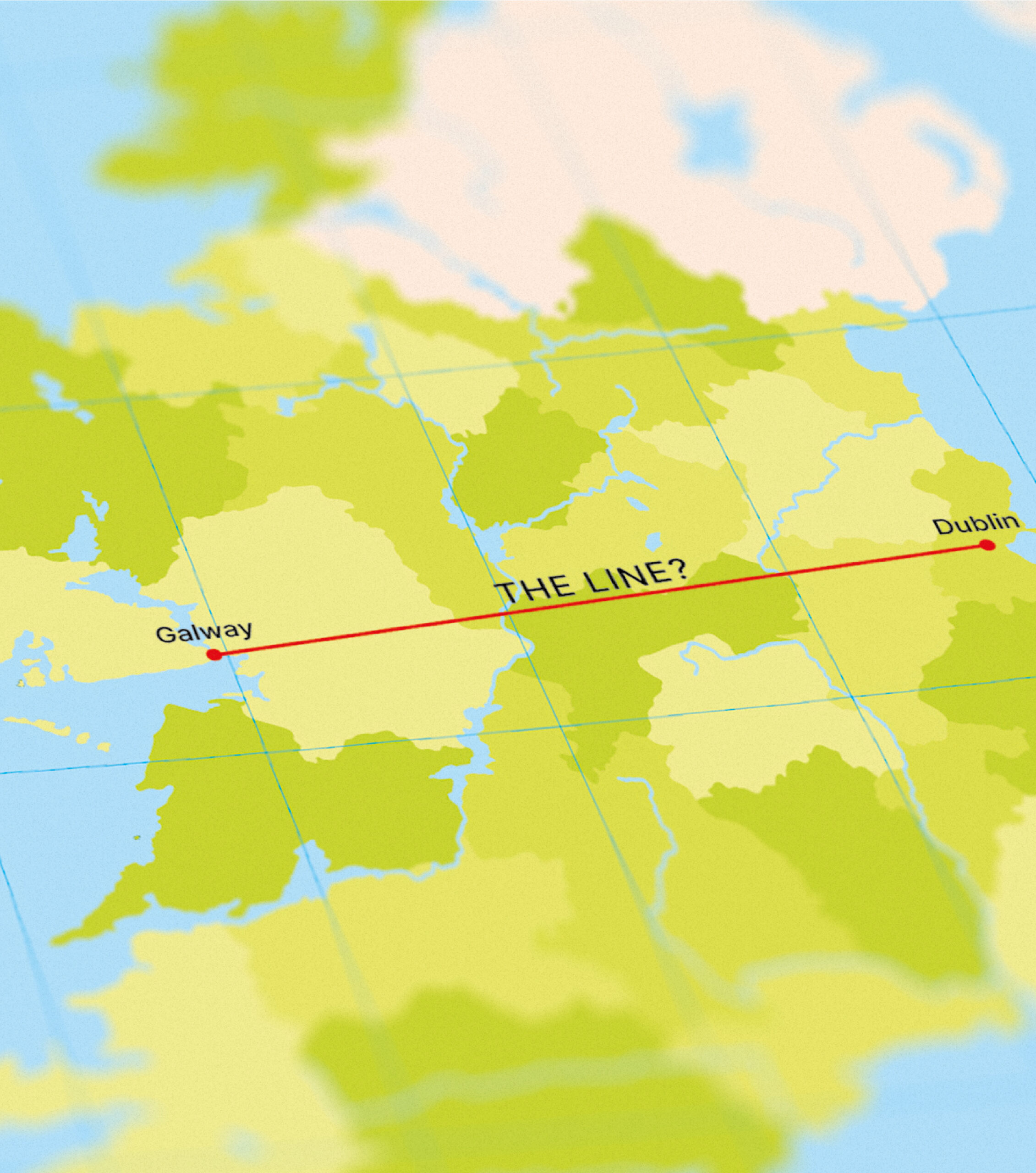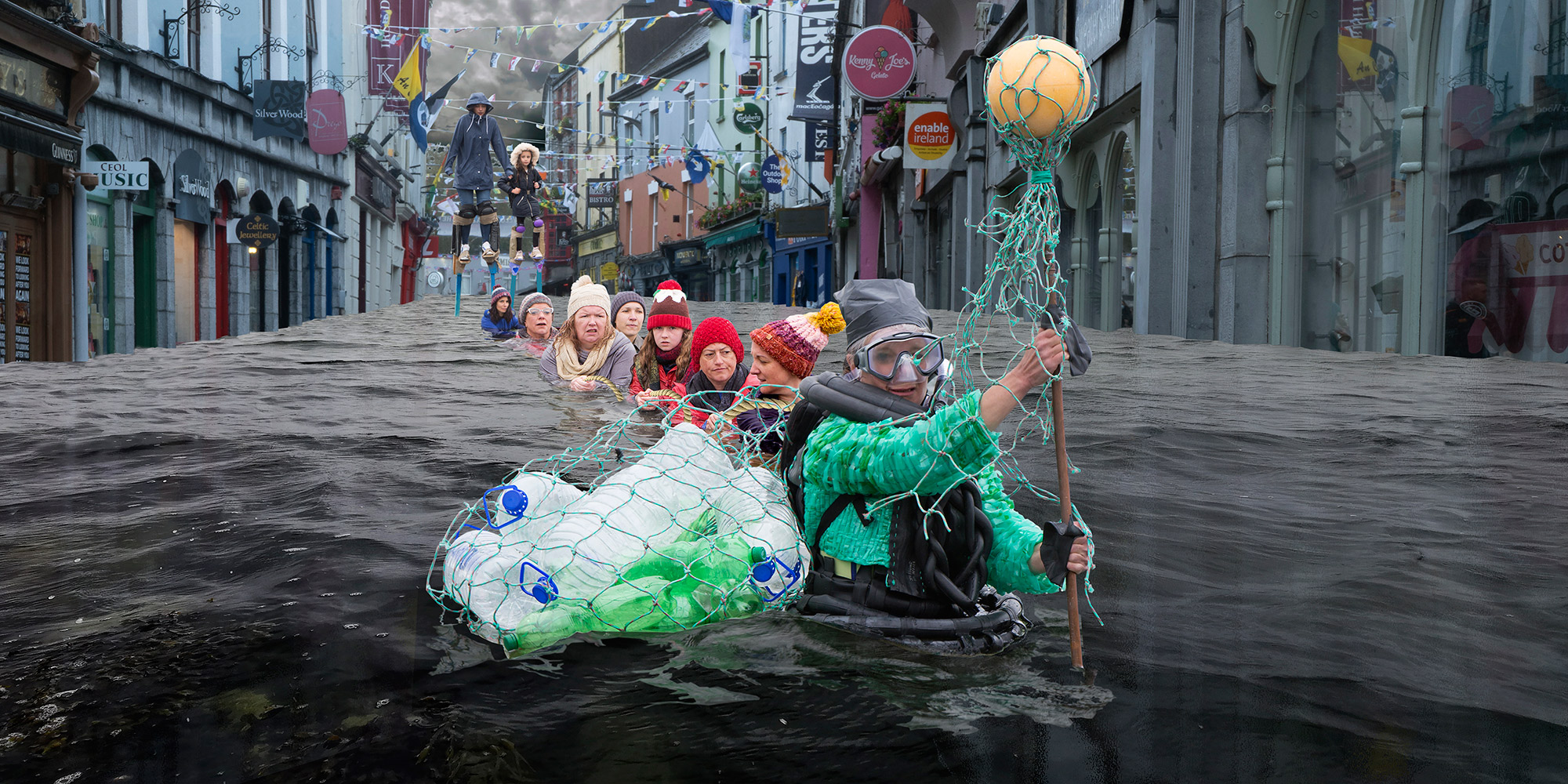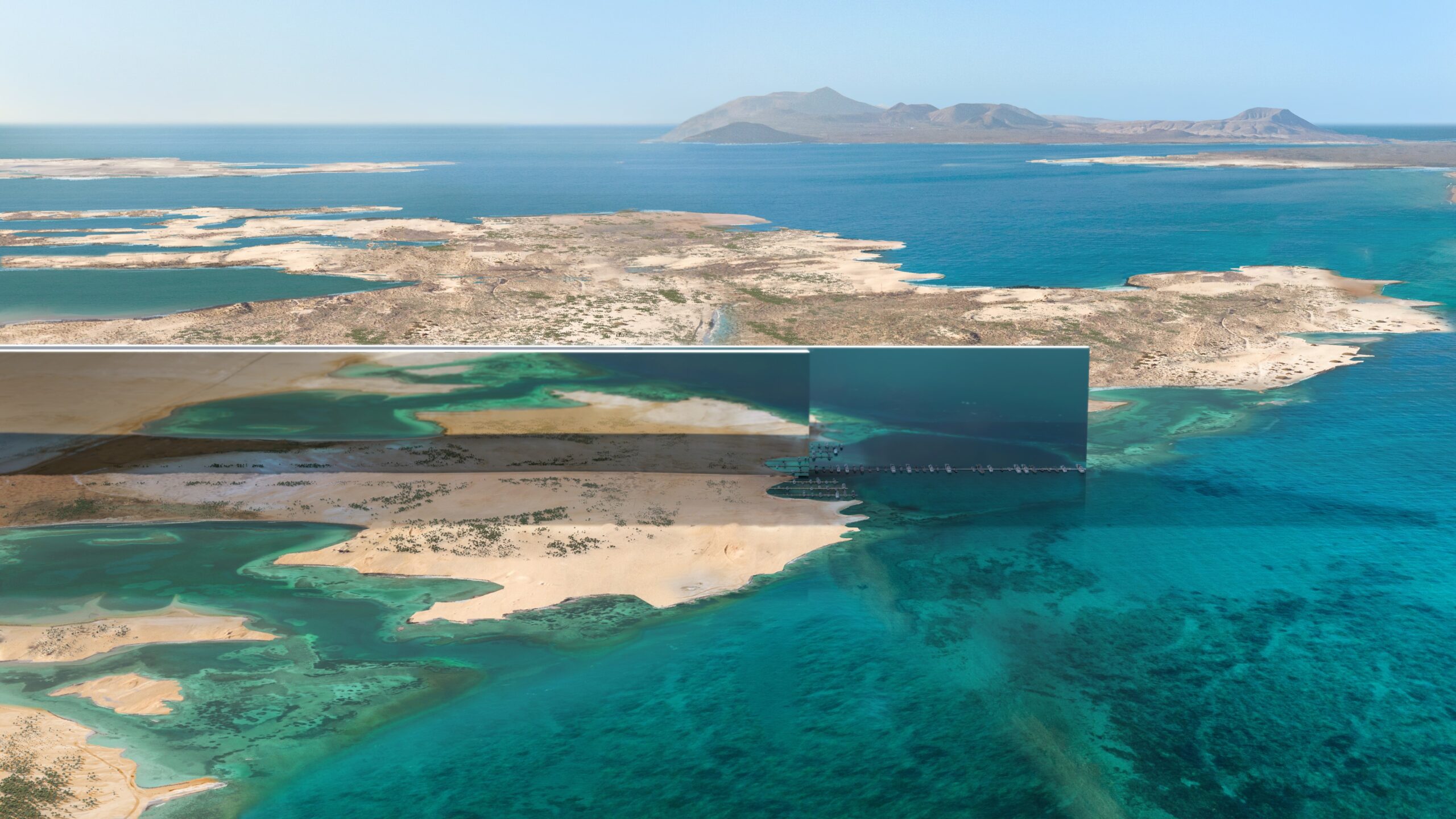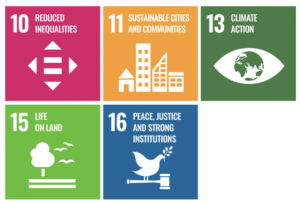
We like to mix the global and the local in Galway. We talk a lot about climate, justice, land and housing, which is why the Sustainable Development Goals mean so much to us. Our greatest task now is to envisage the carbon-free, sustainable and inclusive communities of the future. ‘THE LINE’ offers a glimpse into what these could look like.
At all times of the year in Galway, the weather is a great conversation opener, as alumni will remember. Perfect strangers can express strong views. It always ends in agreement – it could be better. The climate, and how it impacts on our enjoyment of life, is ever-present. And we want to keep on enjoying this into the future here – we love the idea of sustainability. Indeed, sustainability has been one of the core values of the University Strategic Plan since 2020. Our Climate Action and Sustainability Strategy, commits us to providing “leadership to inform the transition to a sustainable future,” and we aim for carbon neutrality by 2030.

Here in Galway, we support the UN Sustainable Development Goals (SDGs) – a plan of action for people, planet and prosperity, signed by 193 countries in 2015. The SDGs propose a range of national targets for 2030, in health, education, gender equality, clean water, affordable and clean energy, industry and infrastructure, climate action and peace, with a commitment to “leave no-one behind.” The key message is that the SDGs are for everyone in society, and everyone can make a contribution to their success.
The University has signed up to the SDG Accord promising to inspire, celebrate and advance education in delivering these goals, through education, research, leadership and engagement activities. Indeed, we are the only Irish third level body to be awarded “SDG Champion” status for 2023/24. In the wider university network, students, academics, staff and alumni all pitch in to achieve the 17 SDG Goals.
Climate change is the most urgent issue of our time, with the potential to negate all sustainability actions. As a coastal city, we are prone to rising sea levels and flooding. Projections of Galway City under water, guided by predictions as soon as 2030, have been created.
Land is important in Galway. Some claim that land (and its modern equivalent, housing) ownership is in our rural DNA. Indeed some, but not all, trace this to the impact on our collective psyche of Famine era evictions. Today, in the context of climate change, new terms are becoming part of our conversations, such as managed retreat, displacement, climate gentrification and active land management – all now becoming political issues too. For example, “green grabbing” – or foreign appropriation of land for biofuel production, carbon emission trading, ecotourism or conservation of biodiversity – results in a pattern of unjust development.
SDG Goal 15 (Life on Land) asks us to commit to the protection, restoration and promotion of sustainable use of land and forests, while halting biodiversity loss. Ireland has now also committed to providing universal access to safe, inclusive, accessible and green public spaces, in particular for women and children, older persons and persons with disabilities.
Housing is a hot topic in Galway, as a growing “Univercity” with high rents, some squalid offerings for students and many homeless families living in emergency accommodation. But housing is also a major part of the climate change debate. Housing carries a major ecological and carbon footprint, between construction (use of concrete), urban sprawl, soil sealing, energy consumption, water use, pollutants and loss of biodiversity. Indeed, use and construction of buildings account for 37% of energy related carbon dioxide emissions globally. The International Energy Agency expects that 650 million air conditioners will be added by 2030 and another two billion by 2050.
SDG Goal 11 commits us to making our cities and human settlements inclusive, safe, resilient and sustainable. We have accepted the SDG target of ensuring access for all to adequate, safe and affordable housing and basic services, by 2030. The key word here is affordable, generally defined as requiring no more than 30% of net income to be spent on housing costs. Under the European Green Deal, we have committed to upgrading the Energy Performance of our housing to Grade E by 2030, with housing legally offered for sale or rent requiring such certification. So, we know what we have to do, but knowing and doing are not the same.

Some apocalyptical narratives, such as The Collapse of Western Civilization: A View from the Future by “future historians” Naomi Oreskes and Erik M. Conway, set in 2093, looks back to a world where climate change has utterly reshaped life on Earth.
Of course, now in 2023, the word “crisis” is so pervasive so as to almost lose its meaning – there seems to be a crisis everywhere. Such fatalism is debilitating. We must move beyond climate anxiety which undermines any effective actions, and it is important to recognise that there are many hopeful developments.
While few States have undertaken such monumental policy development on integrating the SDGs as China, which plans to create a “Beautiful China” by 2050, Colin Murphy points out that more than half the world’s publicly listed companies now have “net zero” targets. (1) So do the long list of countries covering 90% of the world’s emissions, GDP and population. It is not inevitable that the Earth will become uninhabitable.
Ireland’s public service played a key role in developing the SDGs. Ireland and Qatar were co-facilitators of negotiations on the political declaration of the SDG Summit in September 2023.
Of course, as with all great plans and goals – support for and the effectiveness of the SDGs will come down to their impact on peoples’ lived experience. Indeed, the 376-page Irish Report in June 2023 sets out Ireland’s whole-of-government and political approach, where every government department is involved, and consultation with “stakeholders” is extensive – including a specific youth consultation process. The Report reframes most Irish State policies in terms of the SDG goals. The principle of “leaving no-one behind” forms a significant part of the Irish State report, based on a consultation Forum addressing various issues (education, employment, social protection, health, community engagement and inclusion, housing, climate action and the circular economy). The Forum also focussed on people’s lived experience of what it meant to be left behind.
Hope is one human value which keeps us going – and it is in real demand when we talk about climate change and sustainable development goals. But hope is not enough; we must envision new models of society which are carbon-free, inclusive, liveable and enjoyable – new models which enable everyone to achieve their full potential.
The path towards sustainability calls for a blend of small, tangible steps and big picture thinking. We need to be able to see what a sustainable city of the future could look like. One example happening now is THE LINE – a futuristic planned city with one million residents by 2030. THE LINE will make up a 170-kilometer-long belt (about the distance between Galway and Dublin) of hyper-connected, sustainable communities, powered by 100% renewable energy resources, with all services and amenities accessible within a five-minute walk. Residential areas, leisure and entertainment zones, business districts and research facilities will all be integrated.
The city’s infrastructure will prioritise sustainability and environmental conservation, with extensive green spaces, designed to minimise environmental impact and maximise sustainability practices. THE LINE will integrate advanced technologies like artificial intelligence, robotics and the Internet of Things to enhance the quality of life for its residents. Free of roads and cars, an ultra-high-speed transit will be provided through autonomous vehicles.
Of course, this particular project will only be available to wealthy people, and will disrupt some eco-systems. Nevertheless, the model has sparked productive discussion as a futuristic vision of a sustainable city that leverages technological advancements to create a high-quality living environment. We can adapt it into a socially inclusive model through our political engagement.
Could we now imagine such a future sustainable city on the 170 kms between Galway and Dublin? Of course, we would need a few gaps for cows, snails and others to cross, but remember, the travel time from end to end would be 20 minutes – now there’s a thought.
